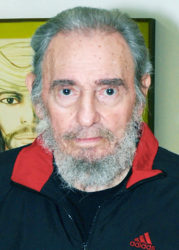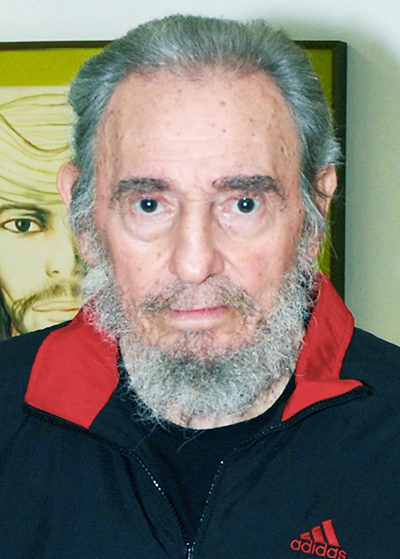CARACAS (Reuters) – Venezuela’s ruling socialists mourned former Cuban leader Fidel Castro, while opposition hardliners exulted over the death of a man they called a dictator who helped wreck their economy and whose country for years had an easy ride with subsidized oil.
The two leftist Latin American governments became intimate allies under Castro and his younger disciple, the late Venezuelan leader Hugo Chavez, a relationship buttressed by generous oil shipments from the OPEC country to the Communist-run island in return for thousands of Cuban doctors, teachers, sports trainers and security advisers.
But that economic lifeline to Cuba ebbed in recent years as Venezuela, in the throes of a brutal economic crisis that has seen millions skipping meals, has cut back on the subsidized crude.
Venezuela used to send Cuba some 100,000 barrels of oil per day, but data seen by Reuters showed a 40 per cent decline in crude shipments in the first half of the year compared with 2015 and that could fall further amid a production slump.

After Chavez died of cancer in 2013 following treatment in Cuba, the special personal relationship between the two governments cooled, too.
Chavez’s successor, Nicolas Maduro, and Raul Castro, who took over from his older brother in 2008, do not have as strong a connection.
Indeed, Maduro seemed caught out when Raul Castro, considered a pragmatist, announced he was seeking to mend ties with their shared “imperialist” enemy, the United States, in 2014.
Still, there are no public signs of fissures, and Maduro yesterday hailed the leader whom the Latin American left has held up as one of the ultimate political icons.
“Comandante Fidel Castro has passed into immortality,” an emotional Maduro told broadcaster Telesur early yesterday, adding that he had spoken to Raul Castro. “It’s a big blow for all the world’s revolutionaries. Our thoughts go out to the noble people of Cuba, heroic, courageous.”
Tweeting pictures of Castro and Chavez in military uniforms or embracing, Maduro added the leftist rallying cry, “Hasta la victoria siempre” (“Until victory, always”).
Venezuela decreed three days of public mourning, cancelled a music festival in Caracas, and state television dedicated a special programme to Castro, publicized with the slogan “Honour and Glory to Fidel.” But many in Venezuela’s opposition rejoiced over the passing of 90-year-old Fidel Castro at a time when South America is shifting right after a decade of a strong leftist bloc buoyed by a commodities boom. The opposition itself is seeking to remove unpopular Maduro via a recall referendum and, although authorities have quashed the vote, some activists saw Castro’s death as an auspicious sign.
“We’re definitely in a change of era, dictatorship is dying,” tweeted opposition lawmaker Juan Guaido.
Opposition activists say that while Chavez and Castro may have set out with good intentions to fight the region’s deep economic inequalities and elite politicians, they turned into tyrants.
Hard-line Venezuelans are convinced Havana sends orders to Caracas and bemoan rampant food and product shortages they say have turned their country into “Cubazuela.”
In what has become Cuba’s flagship presence in Venezuela, thousands of doctors work in neglected Venezuelan communities, where they are widely praised by low-income patients, although they have become hate figures for the opposition, who see them as modern-day slaves providing low-quality care. Some have fled from Venezuela to the United States, via Colombia.
Venezuela’s hyperactive social media scene was filled with tongue-in-cheek memes, including one showing Chavez and Fidel Castro reunited in hell.
The Venezuelan opposition slammed the government’s ode to Castro.
“For Venezuelans, the real mourning is for: The young that government-led raids and crime kill, the babies that bacteria assassinate in hospitals… Those who die due to food shortages, those who die due to medicine shortages,” said opposition coalition leader Jesus Torrealba.

